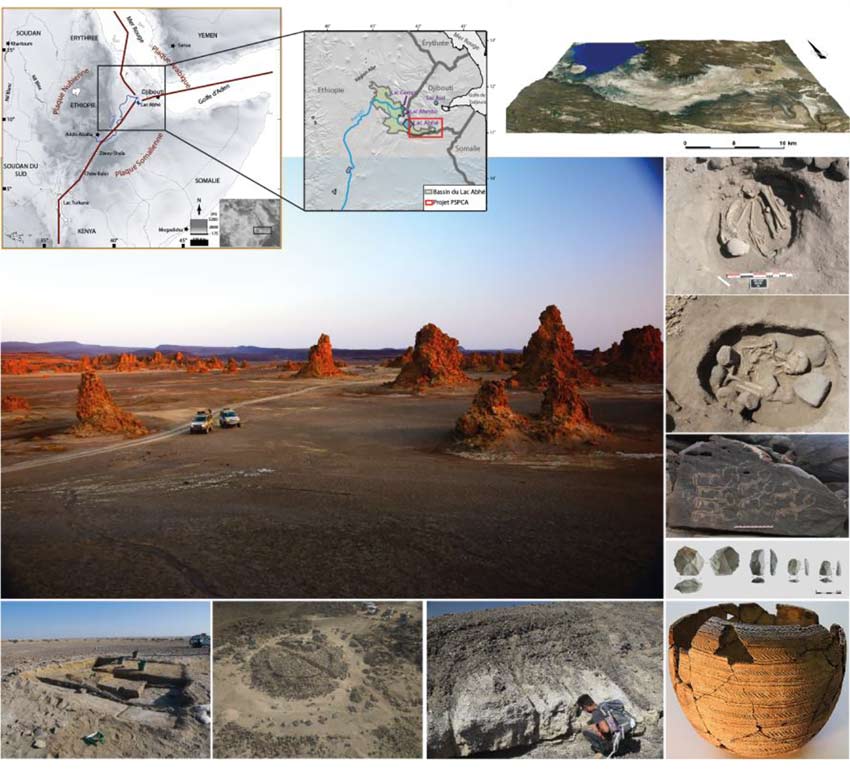June 14 2021 13h: international seminar n° 23
Speaker
Jessie Cauliez
UMR TRACES, CNRS, Université Toulouse Jean Jaurès
Topic
Climatic and paleohydrological variations of Lake Abhe since the end of the Pleistocene (Djibouti) and the transition from the last hunter-gatherers-fishers to the first herders in the Horn of Africa
The Gobaad sedimentary basin was covered by the major transgressions of Lake Abhe during the late Quaternary. These lacustrine transgressions affected the morphology of certain volcanic formations in the Horn of Africa, as well as their accessibility during wet periods, giving rise to successive episodes of geographic constriction and expansion of the environments exploitable by humans during the Holocene. These environmental conditions inevitably played a decisive role in the ways of life of human groups: affecting demography, adaptations, movements, the delimitation and evolution of their territory and the emergence of technical innovation. The project presented here aims to assess the influence of climatic changes (humid/arid episodes) on the emergence and settlement dynamics of the first production societies in the Horn of Africa. Other considerations will also be proposed: in terms of identity and cultural segmentation on the one hand, and organization, complexity and social competition on the other hand.

Jessie Cauliez is a prehistorian archaeologist, and ethnoarchaeologist, researcher at the CNRS. At the laboratory TRACES, she codirects the team “PSH First Holocene Societies: between innovation, anthropization and complexification.” Her work on the first agro-pastoral societies, at the dawn of metallurgical developments, focuses on the north-western Mediterranean, the Horn of Africa and the Southern Africa, where she currently directs several research programs. She has also developed ethnographic work in Ethiopia, with several ethno-linguistic groups.
Lieu
Amphi B, Bât. B8 et Visioconférence




